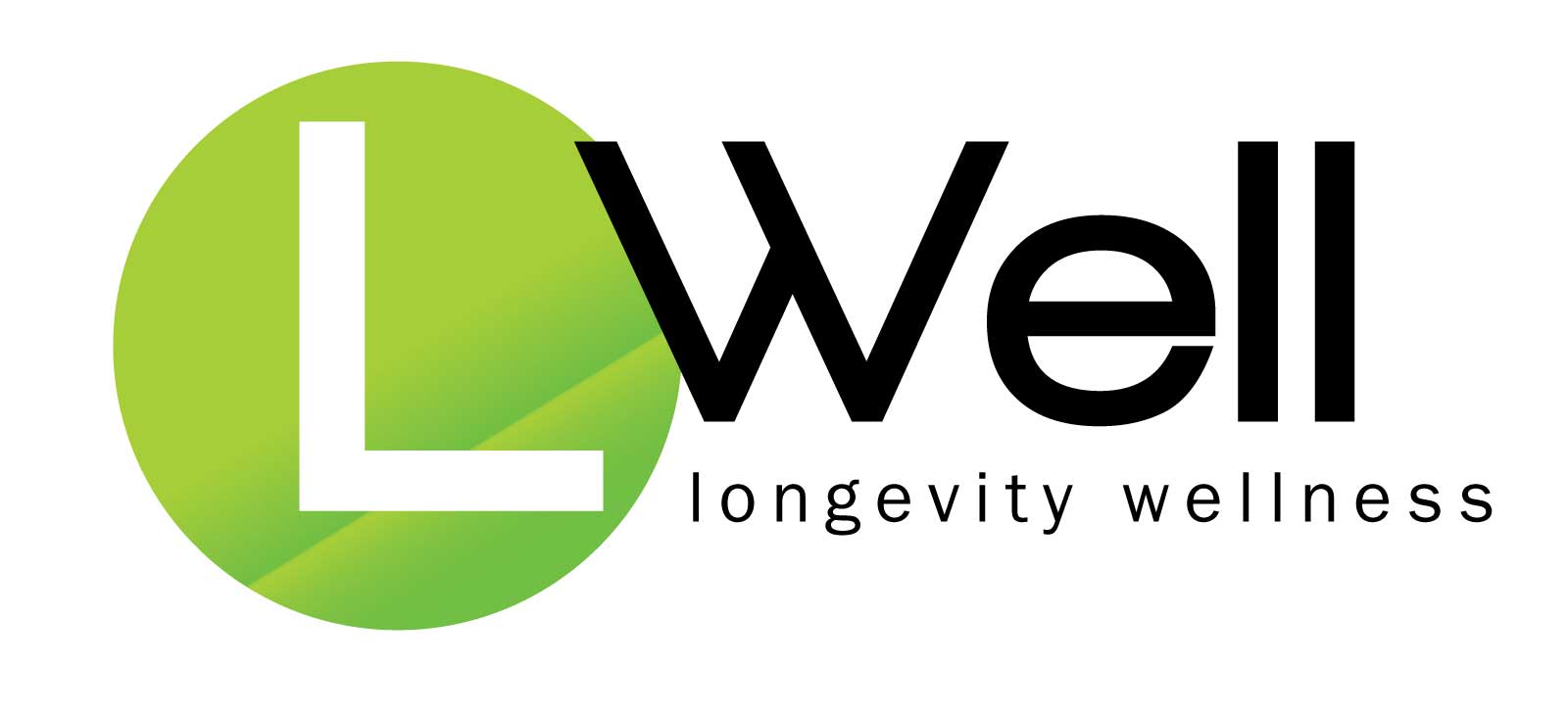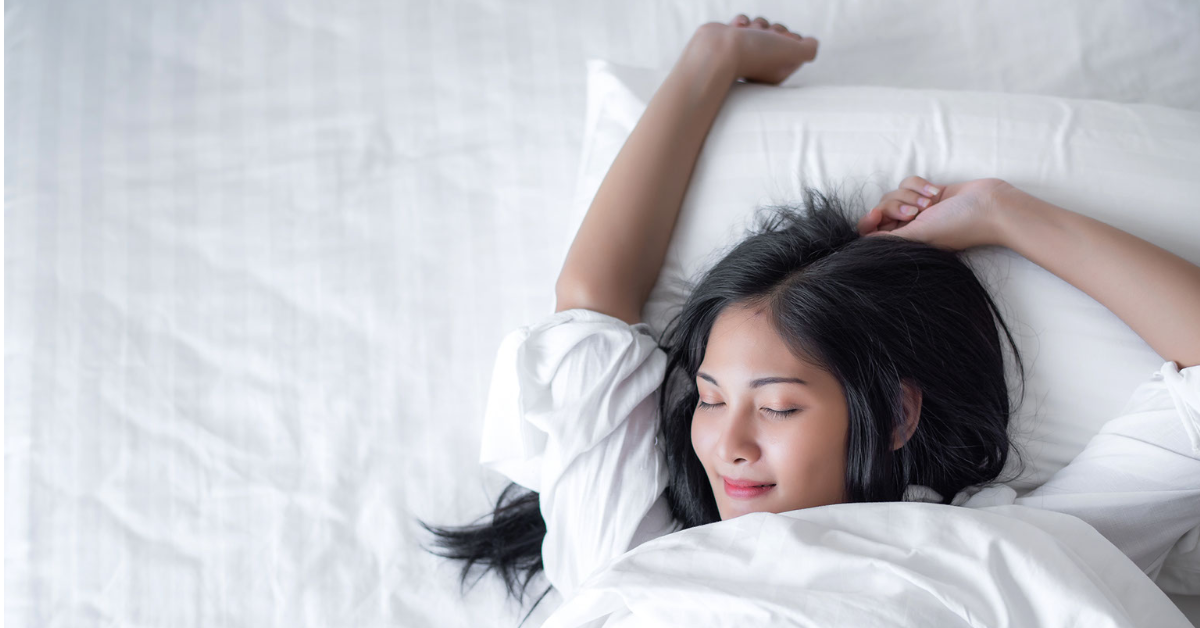Sleep Better Tonight: 5 Strategies
By Kate Langbehn, MS, RD
Perhaps one of the most overlooked, yet very important aspects of health is sleep. Most adults require between 7-9 hours of nightly sleep. However, work schedules, day-to-day stressors, a disruptive bedroom environment, and medical conditions can all prevent us from achieving adequate sleep. If you work third shift, binge-watch Netflix regularly, or have chronic issues with getting quality sleep, it may be time to reset your internal clock.
Circadian rhythm is the name given to the body’s 24-hour internal clock that controls our sleep-wake cycle. It helps us be alert during the day and ready for sleep at night. These biological patterns also influence our digestion, hormones, immune system, and even body temperature.
It’s important to note that everyone’s circadian rhythm is different. Variations are referred to as chronotypes, which are based on factors such as age, genetics, daylight exposure, etc. If you are interested in learning your chronotype, you can take a quiz called the Auto MEQ (or Automated Morningness Eveningness Questionnaire). This chronotype self-test can give you personalized advice about your circadian rhythm type. The survey can be found at www.cet.org.
Our sleep patterns are heavily influenced by our sleep-wake cycles. If your sleep-wake cycle is not in alignment with natural light and darkness cues, you may notice a range of changes to your sleep health, and consequently, your physical health. Insufficient sleep can cause mood changes, trouble focusing, hormonal shifts, changes to metabolism, and reduced immunity. If you feel like you need to fix your circadian rhythm, I have some reset strategies to help you create healthy sleep hygiene habits.
- Stick with a Regular Sleep Schedule
First, maintain a consistent sleep and wake pattern. If you can go to bed and wake up at the same time each day, your rhythms will naturally start to go back into balance. I know it’s not always possible but try to maintain a consistent sleep and wake schedule and this includes weekends. Over time your body will adjust to that new schedule and learn when it is time to go to sleep and when it has to wake up. Again, consistency is key and just do your best.
If you want to adjust your clock, for example, to a new schedule or to go to bed earlier, it is not wise to change everything at once. You have to shift slowly; so, if your current bedtime is midnight, but you want to go to sleep at 10, you can start dialing back by let’s say half an hour earlier for 7 days. Then the next week go to bed another half-hour earlier until you get to where you want to be. And this also applies to your wake time. If you want to wake up earlier, it is best to do so slowly to help your body naturally adapt.
- Create an Optimal Sleep Environment
The next thing is to create a great sleeping environment. Maintain comfortable temperature settings and low light levels in your bedroom. I personally use blackout curtains, but eye masks are another great option. Minimize distractions when sleeping. Some people need silence, while others use white noise to mask environmental or outside noises.
- Get Regular, Intentional Movement
Exercising regularly can help you sleep as it helps boost melatonin production. There is anecdotal evidence that some people have difficulty falling asleep after vigorous bouts of late-night exercise since it raises adrenaline, activates the brain, and increases body temperature. For most people, however, exercising close to bedtime doesn’t appear to negatively affect sleep quality. So, if the only time you have to exercise is right before bed, getting exercise is almost always better than no exercise at all.
- Reign in the Uppers and Downers
The two legal drugs that we use at any time to either perk ourselves up or help us mellow out are caffeine and alcohol. If you drink caffeinated beverages, consider its half-life with respect to when you want to be in bed. Caffeine’s half-life is 5-7 hours, so in other words, half of it will be out of your body in 7 hours. If you are trying to go to sleep at 10 pm and you had a caffeine boost at work around 4, then you will likely find it hard to fall asleep. Another variable to consider is how you metabolize caffeine. Some people are fast metabolizers, often these are habitual coffee drinkers. Then you have others who metabolize it slowly and feel jittery or notice an accelerated heart rate after caffeine consumption. Alcohol is a central nervous system depressant and may help you fall asleep, but this is outweighed by the negative effect it has on sleep quality, as it reduces REM sleep. Ideally, eliminating both caffeine and alcohol is the best choice, but we must be realistic here. Aim to at least track how they affect your biology and sleep.
- Control Your Light Exposure
Light is the most powerful factor in aligning our circadian rhythms. Circadian clocks are sensitive to sunlight during the first hour of awakening, so open your curtains or blinds. Exposing yourself to sunlight or even fluorescent or LED lights in your home in the morning activates cortisol and natural rhythms.
Exposing yourself to darkness in the evening can also align your internal clock. Electronic devices, such as computers, cell phones, kindles, and so on emit a blue light that is very disruptive to sleep, as cells in the eyes that respond to light are particularly sensitive to blue light. This can shut off the body’s natural melatonin production signaling the brain that you should be alert rather than sleepy.
Light is medicine, and you want the right light at the right time. Red light is by far the best calming color and does not negatively affect circadian rhythms at night. You can get red light bulbs to use in your house at night and blue blocker glasses. Watching TV in bed is not a great idea, but if you’re doing that, please invest in some blue-blocker glasses to help reset your rhythm.
It’s important to remember our biological rhythms are the key ingredient for long-term health. Sleep is so important, which is why we spend nearly a third of our entire lives sleeping. Sleep-related issues are also common. We have all experienced periods where we have difficulty falling or staying asleep. You may also have had trouble staying awake in the evening, getting out of bed in the morning, or focusing on your work because you’re too tired. There are many reasons that can account for an occasional sleepless night or two. However, if you find yourself experiencing persistent sleep issues, it’s important to figure out the “why.” It could be that your circadian rhythms are out of whack.
Kate Langbehn, MS, RD, is a registered dietitian at LWell and has been practicing for nearly 20 years. She holds an M.S. in Public Health Nutrition from Case Western Reserve University in Cleveland, Ohio, and a B.S. in Health and Sport Studies from Miami University, in Oxford, Ohio. She is also a certified personal trainer with expertise in childhood, adolescent, and adult weight management. Book an appointment with Kate today!
Is this test right for me?
To determine if a GI map is right for you, consider your symptoms, medical history, and treatment goals. If you're experiencing persistent gastrointestinal issues, unexplained symptoms, or have a family history of digestive disorders, discussing GI mapping with an LWell provider may provide valuable insights. Consulting with LWell can help assess whether the test aligns with your healthcare needs and goals, guiding you in making an informed decision about whether to pursue GI mapping as part of your diagnostic and treatment journey.
How accurate is this test?
GI mapping tests utilize advanced molecular techniques to analyze the composition and function of the gut microbiome, providing detailed insights into microbial diversity, imbalances, and potential markers of gut health and disease.
Sample required
The Gastrointestinal Microbial Assay Plus (GI-MAP™) is an innovative
clinical tool that measures gastrointestinal microbiota DNA from a single
stool sample with state of the art, quantitative polymerase chain reaction
(qPCR or real-time PCR) technology.
Get on Track
Call to schedule your appointment with an LWell dietitian and get on track to better health.
(833) 516-0454
Williamsburg, VA 23185

